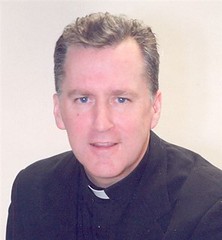Rembrandt (1606-1669) The Supper at Emmaus. 1648. Oil on wood. Louvre, Paris, France
Jesus had twelve Apostles, but he also had many other followers whom he called disciples. Jesus walked with his two of these disciples, Cleopas and his companion, along the road to Emmaus, about seven miles from Jerusalem. St. Mark alludes to this event in his Gospel which St. Luke recounts with more details.
The disciples are downhearted, because they believed Jesus would free them from the power of the Romans, and they think he remains dead. Jesus wanted to comfort them and bring them to true faith in him and then to be his witnesses. But as they walked along, the disciples did not recognize him.
Jesus gradually reveals the resurrection to them. First, he explains all that referred to him in the Scripture. He showed how the promised Messiah would have to suffer, but then die and rise again.
As Catholics, we believe that the Scripture is the inspired Word of God, but we must understand Scripture as the Church understands it. Before there was a New Testament, there was the Church. The Church encourages us to read Sacred Scripture. In fact, St. Jerome said “Ignorance of Scripture is ignorance of Christ.”
As they are fed with the Word, Cleopas and his companion have new and lasting hope. Jesus pretends to continue along the road, but his disciples plead with him by saying “Stay with us.” Still, they don’t recognize him. It is only when he took the bread, blessed and broke it that the disciples recognized Jesus. The “breaking of the bread” was a term the early Christians used to describe the Eucharist.
At every Mass, Catholics have an experience similar to these disciples. First, we are fed with the Word of God. Then we are fed with the Eucharist in which we receive Jesus in his body, blood, souls and divinity.
The Eucharist is the source and summit of our lives. (Dogmatic Constitution on the Church, 11). It is the source, because Jesus says “Apart from me you can do nothing” (John 15, 5). He also says “Unless you eat my body and drink my blood. You have no life in you” (John 6:53).
The Eucharist is the summit, because there is no more perfect union with Jesus which we can experience on this earth than receiving him in the Holy Eucharist. Jesus says “He who eats my flesh and drinks my blood abides in me and I in him" (John 6, 56).
The Eucharist is a pledge of eternal life. The Catechism of the Catholic Church teaches us that when we receive Jesus in the Eucharist worthily, he helps to separate us from sin, cleanses us of venial sins, strengthens virtue, prevents future mortal sins, renews, strengthens and deepens our incorporation into the Church – Christ’s Mystical Body, compels us to work for unity among Christians and commits us to the poor. The most vulnerable of the poor are the unborn babies, whose lives are not respected, or protected, and are threatened by the violence of abortion. The Eucharist should commit us to building a culture of life, and protecting human life at all stages of development and conditions.
The disciples were strengthened through the Word which Jesus explained to them. They recognized Jesus in the “breaking of the bread”. Now they return to Jerusalem to let the Eleven remaining Apostles know what has happened. When we leave the Mass we go into the world. We should seek opportunities to tell people what God has done for us, and what happens at every Mass, when we have an opportunity to be fed by the Word of God, to be united with Our Lord and Savior in the Eucharist and to receive him who is our pledge of eternal life.

2 comments:
You have awesome blog.
http://buy-tools.blogspot.com/
Awesome blog.
http://buy-tools.blogspot.com/
Post a Comment